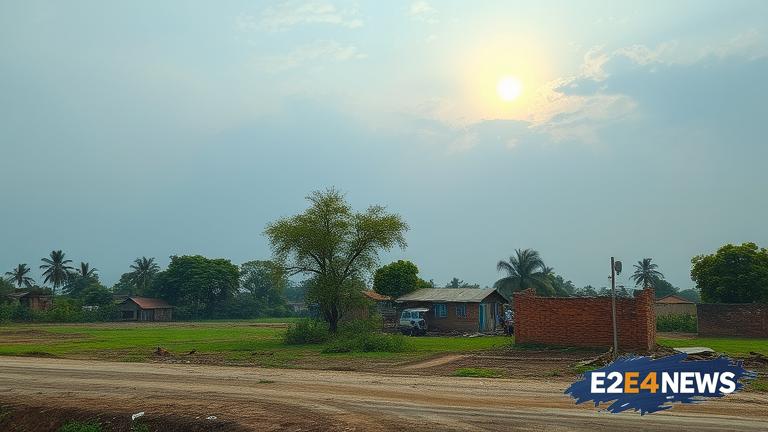South Punjab, a region in the southern part of Pakistan’s Punjab province, is facing a multitude of challenges that have left it vulnerable to natural disasters. The region has been plagued by poor infrastructure, inadequate healthcare facilities, and a lack of government support, making it difficult for residents to cope with the aftermath of disasters. The area is prone to flooding, droughts, and heatwaves, which have devastating effects on the local population. The lack of proper drainage systems and infrastructure has exacerbated the problem, leaving many areas waterlogged and inaccessible. The government’s neglect of the region has been criticized by locals, who feel that their concerns are being ignored. The region’s economy is primarily based on agriculture, which is heavily affected by natural disasters. The frequent floods and droughts have resulted in significant losses for farmers, who are struggling to make ends meet. The healthcare facilities in the region are also inadequate, making it difficult for people to receive proper medical care in the event of a disaster. The region is home to several major rivers, including the Indus and Chenab rivers, which are prone to flooding. The government has been accused of not taking adequate measures to prevent flooding, despite warnings from experts. The lack of proper planning and infrastructure has resulted in significant losses for the local population. The region is also home to several major cities, including Multan and Bahawalpur, which are struggling to cope with the challenges posed by natural disasters. The government has announced several initiatives to improve the infrastructure and healthcare facilities in the region, but the implementation of these plans has been slow. The locals are demanding that the government take immediate action to address the challenges faced by the region. The region’s vulnerability to natural disasters has also had a significant impact on the local economy, with many businesses struggling to stay afloat. The government has been urged to take a proactive approach to addressing the challenges faced by the region, rather than just reacting to disasters after they occur. The region’s residents are also calling for greater investment in infrastructure and healthcare facilities, to help mitigate the effects of natural disasters. The government’s response to the challenges faced by South Punjab has been criticized by opposition parties, who claim that the government is not doing enough to support the region. The region’s vulnerability to natural disasters has also raised concerns about the impact of climate change, with many experts warning that the region is likely to experience more frequent and severe disasters in the future. The government has been urged to take a long-term approach to addressing the challenges faced by the region, rather than just focusing on short-term solutions. The region’s residents are also calling for greater awareness and education about disaster risk reduction and management, to help them prepare for and respond to natural disasters. The government has announced plans to establish a disaster management authority in the region, which will be responsible for coordinating the response to natural disasters. The authority will also be responsible for implementing measures to prevent and mitigate the effects of disasters, such as flood protection walls and early warning systems. The establishment of the authority has been welcomed by locals, who hope that it will help to address the challenges faced by the region.
